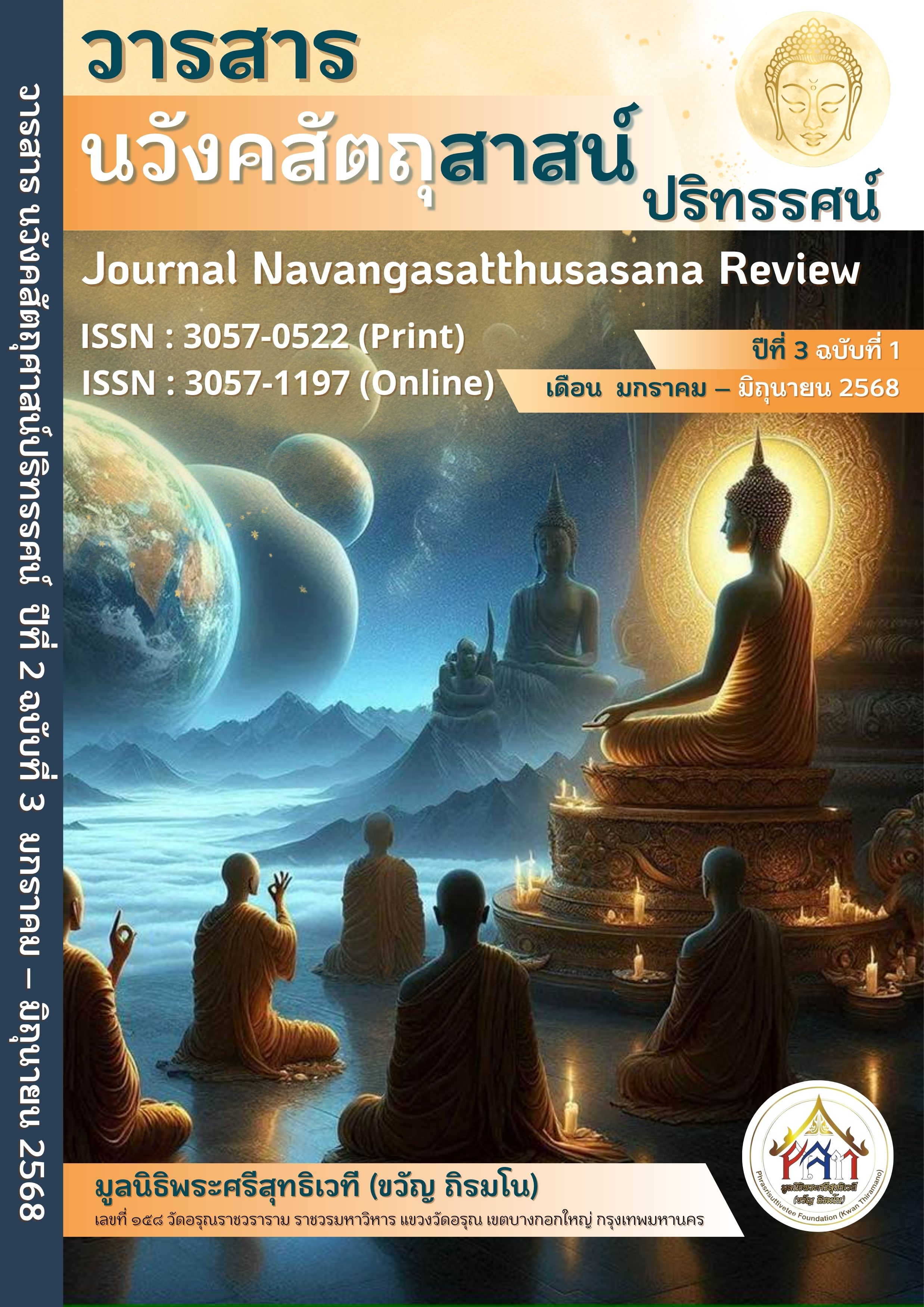The Virtuous Are Not Fools: A Case Study of Hiri-Ottappa and the Role of Intellectuals in a Morally Decadent Society from the Perspective of Buddhist Ethics
Main Article Content
Abstract
This article examines the foundational Buddhist virtues of hiri (moral shame) and ottappa (moral fear), regarded by the Buddha as “the guardians of the world” and hallmarks of a true noble person (sappurisa). It offers a reinterpretation of these moral principles in relation to the role of intellectuals in contemporary society, where moral restraint is often ridiculed, while cunning without ethics is praised. The article draws upon the canonical definitions of “fool” (pāla) and “wise person” (paṇḍita) from the Abhidhānappadīpikā, and analyzes the karmic consequences of theft (adinnādāna), to argue that refraining from evil is not foolishness, but a courageous ethical act rooted in wisdom. It includes a case study from the Tipiṭaka involving two pickpockets to reflect on the Buddhist conception of a true intellectual. Furthermore, the article links these principles to modern phenomena such as corruption and unethical profiteering, showing that hiri and ottappa can serve as ethical counterbalances in a morally disoriented society. Ultimately, the sotāpanna (stream-enterer) is presented as the archetype of the enlightened intellectual—one who lives with karmic awareness and moral integrity.
Article Details

This work is licensed under a Creative Commons Attribution-NonCommercial-NoDerivatives 4.0 International License.
เนื้อหาและข้อมูลในบทความที่ลงตีพิมพ์ในวารสาร นวังคสัตถุสาสน์ปริทรรศน์ถือเป็นข้อคิดเห็นและความรับผิดชอบของผู้เขียนบทความโดยตรงซึ่งกองบรรณาธิการวารสาร ไม่จำเป็นต้องเห็นด้วย หรือร่วมรับผิดชอบใด ๆ บทความ ข้อมูล เนื้อหา รูปภาพ ฯลฯ ที่ได้รับการตีพิมพ์ในวารสาร นวังคสัตถุสาสน์ปริทรรศน์ถือเป็นลิขสิทธิ์ของวารสาร นวังคสัตถุสาสน์ปริทรรศน์หากบุคคลหรือหน่วยงานใดต้องการนำทั้งหมดหรือส่วนหนึ่งส่วนใดไปเผยแพร่ต่อหรือเพื่อกระทำการใด ๆ จะต้องได้รับอนุญาตเป็นลายลักอักษรจากวารสาร นวังคสัตถุสาสน์ปริทรรศน์ก่อนเท่านั้น
References
ดังตฤณ. ผิดที่ไม่รู้. กรุงเทพมหานคร : สำนักพิมพ์ฮาวฟาร์, 2551.
พระพุทธัปปิยเถระ. ปทรูปสิทธิ. กรุงเทพมหานคร : โรงพิมพ์ธรรมสภา, 2543.
พระมหาโกมล กมโล. พระมงคลปริตรตามแนวคัมภีร์สัททาวิเสส ชุด รู้ศัพท์ รู้ธรรม. กรุงเทพมหานคร : ห้างหุ้นส่วนจำกัด ประยูรสาส์นไทย การพิมพ์, 2559.
พระมหาสมปอง มุทิโต. คัมภีร์อภิธานวรรณนา. ครั้งที่ 2, กรุงเทพมหานคร: บริษัท ประยูรวงศ์-พริ้นติ้ง จำกัด, 2547.
พระโมคคัลลานะ. อภิธานปฺปทีปิกา และ อภิธานปฺปทีปิกาสูจิ. กรุงเทพมหานคร: โรงพิมพ์มหามกุฏ-ราชวิทยาลัย, 2535.
พระอัคควังสเถระ. สัททนีติ ธาตุมาลา คัมภีร์หลักบาลีมหาไวยากรณ์. พระธรรมโมลี ตรวจชำระ, พระมหานิมิตร ธมฺมสาโร และจำรูญ ธรรมดา แปล, มหาวิทยาลัยมหาจุฬาลงกรณราชวิทยาลัย วิทยาเขตบาฬีศึกษาพุทธโฆส นครปฐม, กรุงเทพมหานคร : ห้างหุ้นส่วนจำกัด ไทยรายวันการพิมพ์, 2546.
มหาจุฬาลงกรณราชวิทยาลัย. พระไตรปิฎกบาลี ฉบับมหาจุฬาเตปิฏกํ 2500. กรุงเทพมหานคร : โรงพิมพ์มหาจุฬาลงกรณราชวิทยาลัย, 2535.
มหาจุฬาลงกรณราชวิทยาลัย. พระไตรปิฎกภาษาไทย ฉบับมหาจุฬาลงกรณราชวิทยาลัย. กรุงเทพมหานคร : โรงพิมพ์มหาจุฬาลงกรณราชวิทยาลัย, 2539.
มหาจุฬาลงกรณราชวิทยาลัย. อรรถกถาภาษาบาลี ฉบับมหาจุฬาอฏฺกถา. กรุงเทพมหานคร : โรงพิมพ์มหาจุฬาลงกรณราชวิทยาลัย, 2539.
Maurice Winternitz. A History of Indian Literature. Vol. II, calcutta: University of calcutta 1927.


